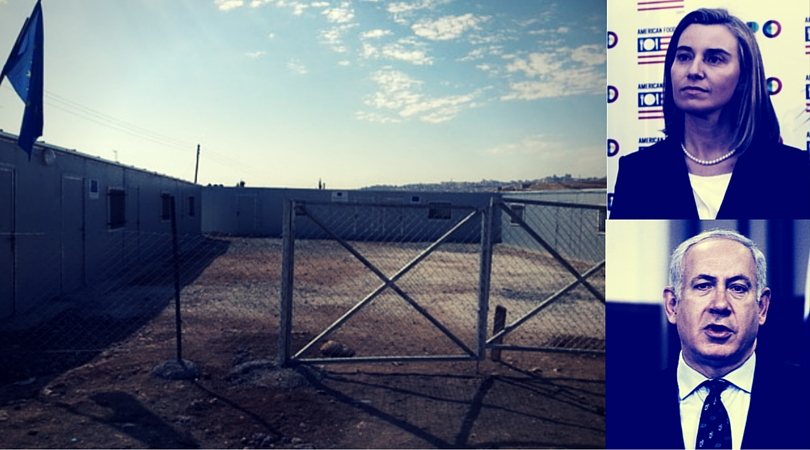Regavim is appealing the EU’s immunity from prosecution. Based on the legal opinion of an expert on international law, Regavim is petitioning the Supreme Court to require accountability and reporting for building violations committed by the Union.
A petition filed this week by Regavim to the Supreme Court may put an end to the systematic evasion of the EU from being accountable for violations of building regulations that it has initiated in Area C of the of Judea and Samaria (West Bank). Regavim is requesting from the judges to require the European Union to participate, first as a respondent to the petition to the Supreme Court and to give an account of its construction activities.
For some years the EU has been trying to take over extensive regions in area C through the establishment of buildings and infrastructures in illegal Bedouin outposts. One of the areas where the EU has made a large concerted effort to invest in is the area surrounding Maale Adumim.
Two weeks ago, Supreme Court justices, Uzi Fogelman, Daphne Barak-Erez and Meni Mazuz rejected the petition presented by Regavim against the Civil Administration in the Judea and Samaria (West Bank) on ignored breaching of the law. The petition demanded that the Civil Administration implement peremptory demolition orders issued against the 15 illegal structures built by the Union within the limits of the jurisdiction of Mishor Adumim and Kfar Adumim.
The judges rejected the petition by Regavim based on the Civil Administration’s statement that the removal of illegal construction there is already a high priority item, and asked them not to get involved in managing schedules for implementing orders. However, in the decision Justice Fogelman hinted that he is not sure that there is basis for the Union’s immunity from such proceedings.
Regavim decided to take up the challenge laid down by Justice Fogelman, and worked on preparing a new petition concerning other illegal structures built by the Union in areas under the jurisdiction of Kfar Adumim. As for these buildings the Civil Administration announced a year ago that they are a top priority for demolition, however since then no enforcement action against them has been made.
Regavim contends that the long drawn out period of time is “the unreasonable renunciation of enforcing the law”, and seek to place the EU illegal construction activities at the center of the Supreme Court hearings.
The petition is based on the opinion of the expert on international law, Professor Aryeh Reich from Bar Ilan University, who doubts the claim of immunity of the EU. “The EU mission is indeed right that it enjoys immunity from lawsuits, both criminal and civil, and administrative,” says Reich, “but there is an exception in this regard in Article 31 of the Vienna Convention on diplomatic relations, in connection with activities relating to its private land that is located within the territory of the host country.”
Professor Reich explains that international law imposes the obligation of respecting the law on foreign diplomats who enjoy immunity. “They are obligated to respect the laws and regulations of the country in which they serve, and not to interfere in its internal affairs.”
Another argument raised by the lawyers of Regavim states that immunity is granted to countries only, while the EU has no absolute status as a country. The inclusion of the Union in the petition is made possible in principle because if the petition is accepted by the court and consequently buildings are demolished, the EU will have to absorb EU economic damage.


